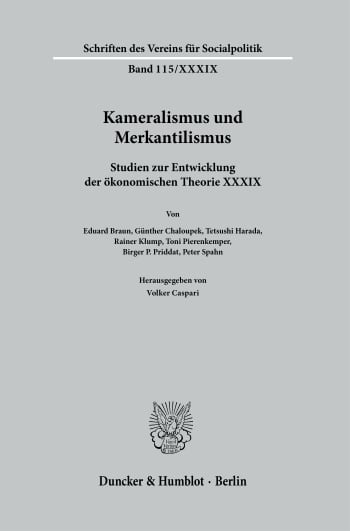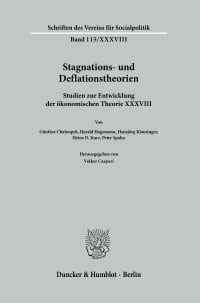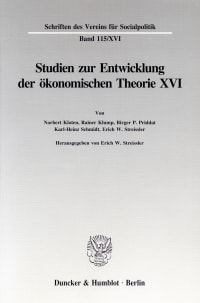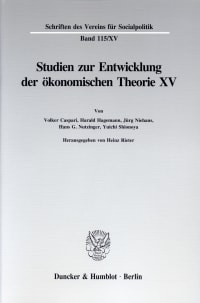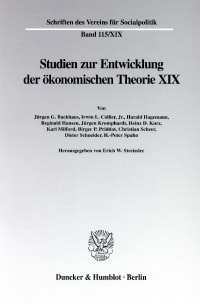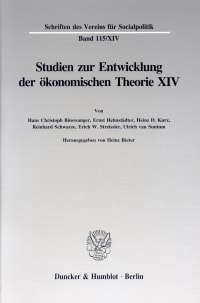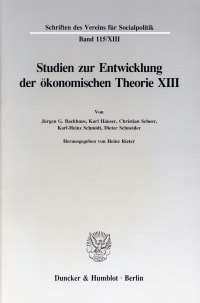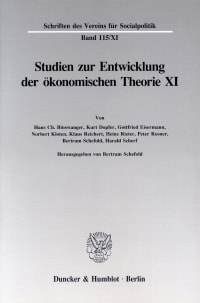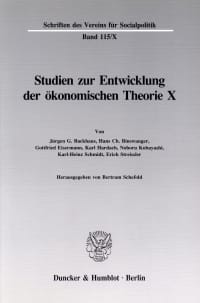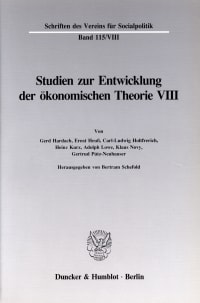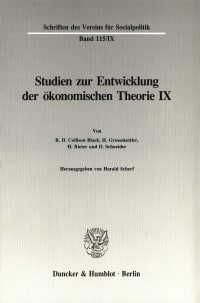Studien zur Entwicklung der ökonomischen Theorie XXXIX
Description
»Studies in the Development of Economic Theory: Cameralism and Mercantilism«: The term »mercantilism« is most commonly understood as an epoch in economic history and was originally coined by Adam Smith, who distinguished his doctrine of his system of natural liberty from that of his predecessors and that of physiocracy. Instead, Cameralism is often referred to as the German version of mercantilism. However, it primarily emerged as a discipline at many universities in the German-speaking territories to form and train the civil servants of their administration.
Funding Notice
Open Access for this ebook on the basis of a CC BY 4.0 license is made possible through ZBW – Leibniz-Informationszentrum Wirtschaft.
Overview
Peter Spahn: Was war falsch am Merkantilismus?
Birger P. Priddat: Über den Kameralismus als Theorie der Vervollkommnung des Menschen durch Ordnung
Rainer Klump: Von Seckendorff zu Moser: Finanz- und wirtschaftspolitische Herausforderungen und Reformprojekte in Hessen-Darmstadt 1660–1790
Toni Pierenkemper (†): »Friderizianischer Kameralismus« in Preußen 1764–1786
Tetsushi Harada: Justus Mösers wirtschaftliche Ideen und deren Einordnung bei Wilhelm Roscher und in der Geschichte der deutschen Volkswirtschaftslehre
Günther Chaloupek: »Der Mann ohne Vorurteil« – Die Bedeutung von Joseph von Sonnenfels für Wirtschaftspolitik und Wirtschaftswissenschaft
Eduard Braun: Die Rolle des Merkantilismus bei der Trennung von Staat und Gesellschaft in der frühen Neuzeit – Unter besonderer Berücksichtigung von Johann Heinrich Gottlob von Justi
